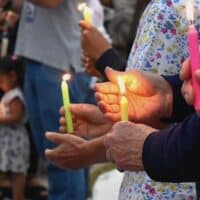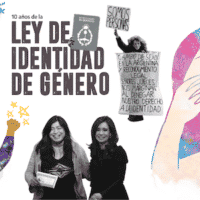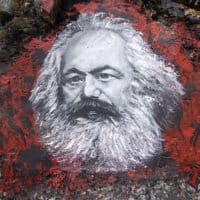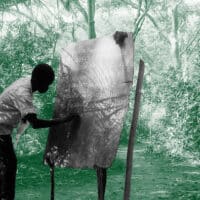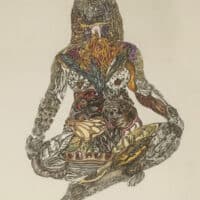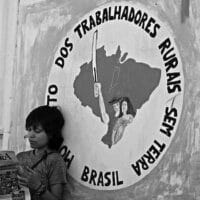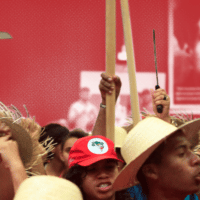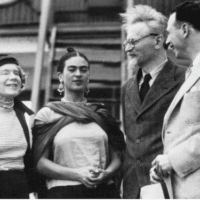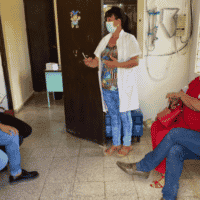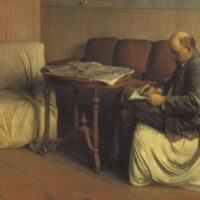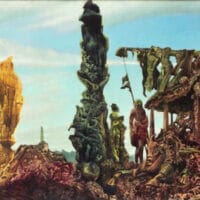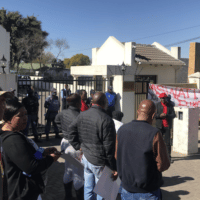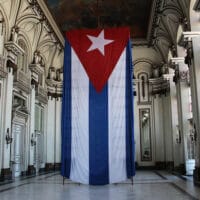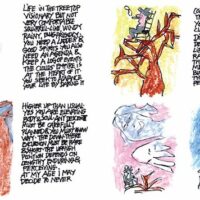-
Palestinian workers forced off Israeli bus to make way for Jewish passengers
A man pretending to be a transport ministry official manipulated the driver into removing around 50 Palestinian workers from the bus.
-
The importance of Anand Teltumbde’s thoughts in a Republic of Caste
Anyone engaging seriously with Teltumbde’s work will know his beliefs are antithetical to the crimes he is being accused of.
-
Colombia witnesses one of the worst killing-sprees of 2022
According to the Institute of Development and Peace Studies (INDEPAZ), 20 citizens were murdered in six massacres in the past 10 days. Five social leaders and five ex-combatants were also assassinated in the same period.
-
10 new albums the U.S. Supreme Court judges won’t listen to
Do you think there’s no good protest music these days? So did I, until I started looking for it. The truth is, it’s always been out there – it’s sometimes just a bit difficult to find. Every month, I search it out, listen to it all, then round up the best of it that relates to that month’s political news. Here’s the round-up for July 2022.
-
How trans rights activists changed Argentina
Ten years ago Argentina passed groundbreaking gender identity laws, a victory won through solidarity, diverse tactics and longstanding activist traditions. The experience has lessons for us all, write Alessandra Viggiano and Siobhán McGuirk.
-
Studying society for the working class: Marx’s first preface to “Capital”
In the preface to the first edition of volume one of Capital, dated July 25, 1867, Marx introduces the book’s “ultimate aim”: “to lay bare the economic law of motion of modern society”. Looking back 155 years later, it’s clear the book not only accomplished that aim but continues to do so today.
-
Israeli Supreme Court rules citizens can be stripped of status for ‘breach of loyalty’
Rights groups expect the law to be used disproportionately against Palestinian citizens of Israel, who make up 20% of the state’s population.
-
The PAIGC’s political education for liberation in Guinea-Bissau, 1963–74
The liberation struggle against colonialism, if it is to be a total liberation struggle, is not only for the political conquest of territory (‘flag independence’); it is a struggle to liberate the people from the tentacles of colonialism.
-
Biology at another crossroads
Richard Levins and Richard Lewontin’s publication of The Dialectical Biologist in 1985 provided a gestalt moment which remains just as valid and applicable decades after the book’s publication, if not even more so.
-
Breaking the map with the machete’s edge: the internationalism of the landless
Landless, but with a lot of history, the peasants of Brazil’s MST have been practicing internationalism as a principle since 1984. As in their own flag, the machete overflows the borders and traces the itinerary of new possible maps.
-
Dossier no. 54: Gramsci in the midst of Brazil’s Landless Workers’ Movement (MST): an interview with MST Militante Neuri Rossetto
Despite the persistent hegemony of capitalism and its ruling neoliberal ideology, various forms of resistance, social struggle, and proposals for an emancipated future continue to emerge.
-
Understanding the “middle class”
Who, or what, is the “middle class”? Most people identify themselves as middle class, but what does that mean, and what difference does it make?
-
Faina Savenkova – “I wanted Americans to know the truth”
If you ask most teenagers in the United States or Europe what they like to do, they’ll probably tell you they enjoy playing video games like “Call of Duty,” where they pretend to be at war. For them, war is a game. An entertaining way to spend their time after school or on weekends.
-
Marxist, nationalist, feminist: the art and politics of Frida Kahlo
Marxist, Nationalist, Feminist – these are the words that describe not only the political convictions but also the artwork of Frida Kahlo. Although born as Magdalena Carmen Frida Kahlo y Calderón outside of Mexico City in 1907, Kahlo eventually shortened her name and frequently told people that she was born in 1910. This was the year that widespread political unrest finally culminated in the outbreak of the Mexican Revolution.
-
How Cuba is eradicating child mortality and banishing the diseases of the poor
The drastic reduction in infant mortality rates is yet another testimony to the Cuban Revolution’s attention to the health of the country’s population.
-
From Hegel to Lenin
As Lenin prepared to understand the First Great Slaughter of the twentieth century, he spent from September to December 1914 absorbing Hegel’s The Science of Logic (1813). Humphrey McQueen begins a six-part exploration of why Lenin thought he had to do so. This first installment, Dialectical Reasoning: ‘The Science of Interconnectedness’ shows why Hegel is still not ‘a dead dog.’
-
The United States wants to prevent a historical fact–Eurasian integration: The Twenty-Seventh Newsletter (2022)
Over the course of the past fifteen years, European countries have found themselves with both great opportunities to seize and complex choices to make. Unsustainable reliance on the United States for trade and investment, as well as the curious distraction of Brexit, led to the steady integration of European countries with Russian energy markets and more uptake of Chinese investment opportunities and its manufacturing prowess.
-
A prologue to the Swazi revolution, one year in the making
1 year ago, in June and July, a massive uprising led by Communists in Swaziland threatened to overthrow the last absolute monarchy in Africa. With the help of its imperialist allies, the Swazi monarchy brutally repressed this uprising, but they have only temporarily delayed the inevitable. One year later, we can reflect on the conditions that caused the revolution, its successes and missed opportunities, the role of imperialism in tipping the scales to a comprador bourgeoisie, and what has changed in the year since in Swaziland as revolutionary agitation continues.
-
The Struggle between the Future and the Past: Where Is Cuba Going?
I have two favorite sayings. One draws on the dialogue in Shakespeare’s Henry the VI part 2 when Jack Cade envisions that the effect of his plot will be that “all the realm shall be in common.” To this, comrade Dick responds, “the first thing we do, let’s kill all the lawyers.”
-
Peter Schumann turns sketches into comics—and comics into street theater
Five o’clock in the morning is a “preferred time” for Peter Schumann to make comics, he said. Ideas can come from just about anywhere: the weather in the Northeast Kingdom, where he lives, or a piece in the Monthly Review, a long-running socialist publication. “I go by what’s happening in the world,” he said.



